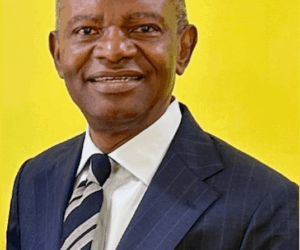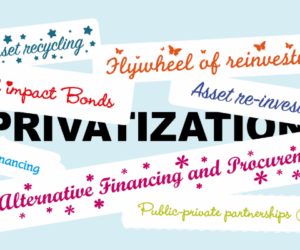
For decades, Nigeria’s tax system has been characterised by a compendium of fragmented laws, inconsistent enforcement, and administrative overlaps across federal, state, and local tiers of government. This multiplicity and inefficiency have long been cited as major constraints on the country’s ability to attract and retain investment, thereby impeding its global competitiveness. Although there have been past initiatives, they often lacked the legal authority and institutional capacity to enforce compliance or drive meaningful coordination across jurisdictions.
The comprehensive tax reform package enacted in June 2025 marks a decisive turning point in Nigeria’s fiscal policy trajectory. Comprising four interrelated laws, the Nigeria Tax Act (NTA), Nigeria Tax Administration Act (NTAA), Nigeria Revenue Service Act (NRSA), and the Joint Revenue Board (Establishment) Act (JRBA), this reform represents the boldest and most coherent effort yet to create a unified, modern, and business-friendly tax environment.
From the outset of his administration in 2023, President Bola Ahmed Tinubu signalled a readiness to undertake difficult but necessary reforms to reposition Nigeria’s economy. His administration’s actions, most notably the politically sensitive removal of fuel subsidies and the sweeping overhaul of the tax regime, reflect a clear ideological shift from state-centric economic management toward a more pragmatic, market-oriented, and rules-based governance model. While these reforms have elicited significant public resistance due to their short-term impact on livelihoods, the administration continues to assert that they are essential foundations for long-term economic resilience.
The Communication Gap and Public Perception
Despite the technical merit of these reforms, the lack of robust communication and an articulated social contract has led to widespread public scepticism. This sentiment is amplified by historical experiences with poor governance and self-serving leadership. As a result, many Nigerians perceive these reforms as further evidence of governmental insensitivity and a deliberate attempt to undermine the welfare of the average citizen.
This disconnect has fueled growing apathy and resistance, obscuring the long-term benefits of reforms of repositioning Nigeria as one of Africa’s most competitive economies. A more inclusive reform process, grounded in transparency, stakeholder engagement, and empathetic communication, might have better cushioned public perception and promoted national ownership.
The Shift in Economic Philosophy
The recent tax reforms represent a structural recalibration of Nigeria’s economic philosophy. The underlying principle was to “tax the fruit, not the tree”, a metaphor that underscores a deliberate effort to extract value only after prosperity has been generated, while protecting and incentivising the productive base of the economy.
By consolidating previously scattered and often contradictory tax statutes into a single, coherent Nigeria Tax Act, the government has not only reduced both the real and opportunity costs of tax compliance for businesses but has also signified its determination to eliminate undue pressure and abuse by overzealous tax collectors, especially on small businesses.
Key features of the new tax regime that reinforce this shift in philosophy include:
- Progressive Corporate Taxation: Small businesses (defined as those with turnover of ₦100 million or less) are now fully exempt from major taxes, including Companies Income Tax (CIT), Capital Gains Tax (CGT), and the newly introduced Development Levy. In contrast, large corporations and multinationals are now subject to higher effective tax rates, including a 15 per cent Minimum Effective Tax Rate (ETR), in alignment with the Organisation for Economic Cooperation and Development’s (OECD) Pillar II global tax rules. This ensures a fairer distribution of the tax burden and helps curb base erosion and profit shifting by multinationals that have previously exploited loopholes.
- Equity in Personal Taxation: On the personal income front, a ₦800,000 tax-free threshold has been introduced, alongside progressive tax bands rising to 25 per cent for high-income earners. These measures provide meaningful relief to low- and middle-income individuals and, by extension, offer some palliative effect on rising hardship, with the potential to rebuild Nigeria’s shrinking middle class, a vital engine for economic growth and political stability.
Streamlining Tax Administration and Compliance Architecture
Perhaps the most transformative element of the 2025 tax reforms lies in the comprehensive overhaul of Nigeria’s tax administration and compliance architecture. The Nigeria Revenue Service (NRS) replaces the Federal Inland Revenue Service (FIRS), and is now empowered to serve as the single national authority for tax collection. Crucially, the law provides a clear legal framework for states and local government areas (LGAs) to voluntarily delegate the collection of certain taxes to the NRS. The law, particularly this provision, creates the foundation for a more unified tax administration structure, capable of eliminating the overlapping mandates and informal practices that have historically plagued Nigeria’s tax system.
The digitalisation of tax administration, anchored on the Electronic Fiscal System (EFS), further enhances the potential for reform success. The system now mandates that all taxable transactions be linked to the National Identification Number (NIN), Bank Verification Number (BVN), and Tax Identification Number (TIN). This integration is expected to enable seamless data sharing across government platforms and improve real-time monitoring and reporting.
Over time, this digital backbone is projected to facilitate greater harmonisation and coordination across all tiers of government, enabling uniform tax practices, reducing leakages, and significantly limiting the incidence of multiple taxation, a longstanding barrier to investment and formal business operations in Nigeria.
The 2025 tax reforms, therefore, are a pivotal shift toward an environment where tax compliance will no longer be synonymous with harassment or arbitrary assessments. By simplifying Nigeria’s fragmented tax system and embedding accountability through a digitalised Electronic Fiscal System (EFS), the reforms are expected to encourage more Nigerians to transition into the formal economy, invest in productive ventures, and contribute meaningfully to national development.
Beyond administrative efficiency, the reforms are designed to work in tandem with recent efforts to de-risk small businesses, particularly through the National Collateral Registry (NCR). The NCR enables micro, small, and medium enterprises (MSMEs) to register movable assets as collateral, making it easier for lenders to assess and accept them for credit. However, the system depends heavily on the ability to verify business identity, ownership, and creditworthiness, areas that had been historically undermined by Nigeria’s weak tax and identity infrastructure.
With the mandatory integration of tax data with national identifiers such as TIN, BVN, and NIN, the tax reform improves business traceability and credibility, reducing information asymmetry for lenders. This integration creates a more reliable data environment for financial institutions and unlocks new opportunities for small businesses to access affordable and long-term capital. For the first time, tax compliance could become a gateway to financial inclusion, enabling formalised businesses to scale operations, attract investment, and foster innovation.
Conclusion
Without doubt, this evolution will bring to the fore several complementary imperatives. Chief among them is the urgent need to revamp Nigeria’s educational and skills development framework, particularly in the areas of technical and vocational education. The persistent reliance on under-skilled individuals being deployed as informal tax agents or revenue collectors exposes deeper structural weaknesses within the current system.
To sustain the gains of the 2025 tax reform, investments in technical skills and the professionalisation of tax administration will be crucial. This shift must reposition tax officers from mere enforcers to facilitators of economic growth, capable of supporting compliance through knowledge, empathy, and transparency.
More broadly, the reform presents a timely opportunity to rechannel the energy and ingenuity of Nigeria’s youth toward more creative, innovative, and sustainable pursuits. By linking fiscal reforms with educational transformation, Nigeria can strengthen the human capital foundations necessary to thrive in the emerging global economy.
Ultimately, the just and effective implementation of the new tax regime could serve not only as a catalyst for economic formalisation and inclusion but also as a strategic anchor for repositioning Nigeria as a globally competitive hub for innovation, investment, and industrial resurgence in Africa.
Dipo Baruwa is a business climate development analyst.










